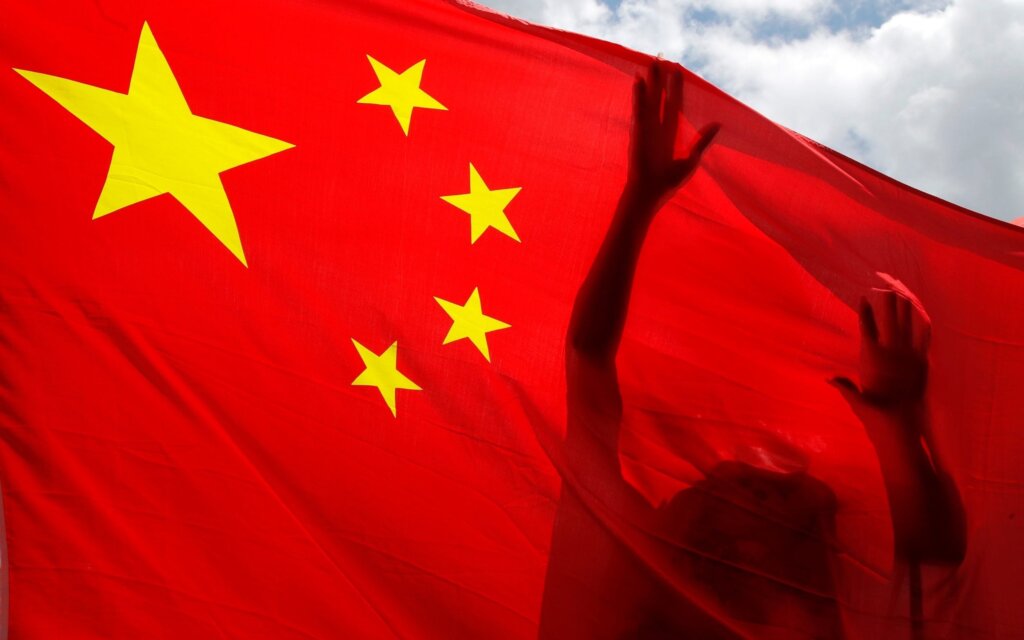
Just finished reading 2034 – a dystopian novel which looks at the scenario which could tip the world into its Third World War. Written by Elliot Ackerman and James Stavridis – who both served as officers in the military. This narrative is set against the backdrop of a naval standoff between the US and China in the South China Sea. As George Orwell and many others previously discovered, within the genre of a novel it is sometimes possible to say things which are quickly dismissed as exaggeration when they appear in long think tank reports. 2034 is a well-informed page turner which should act as a wake-up call.
This fiction should also be read against the background of reality.
Only last week Taiwan recorded the largest Chinese Communist Party military air incursion to date – with 25 aircraft, including 18 fighter jets and four bombers entering Taiwan’s air Defence zone. Combined with Russia’s ominous movement of troops to the border with Ukraine this simultaneous challenge by autocracies to democracies is a serious threat to international order.
The fiction should also be set against the UK’s ambivalent and ambiguous response to increased CCP military aggression. In a glaring omission, the Government’s Integrated Review – being debated in Parliament this week, does not even mention Taiwan.
Dominic Raab, the Foreign Secretary, in a commendation of the Review, rightly says the UK’s ambition should be to emerge as “a force for good” while the Prime Minister says “liberal democracy and free markets remain the best model for social and economic advancement of human kind.”
The question is, how far does the Integrated Review take us in achieving these goals and how urgently do we and our allies take the threat of authoritarian tyrannies.
How should we respond?
The Review rightly argues for the pursuit of a multilateral approach wherever possible, and the “tilt” to expand our relationship with the Indo-Pacific region, with the ambition to be “the European partner with the broadest, most integrated presence” is welcome.
We must strengthen ties with established Asian democracies such as Japan, South Korea and Taiwan; encourage emerging democracies, such as Indonesia and Malaysia; and recognise that alliances with long standing friends such as Singapore and India may not always be predicated by identikit systems of governance; but knowing clearly whose side we are on when we see democrats in Burma fighting tyranny or democrats in Hong Kong incarcerated.
The importance of strengthening our multilateral coalitions and relationships was highlighted last week by New Zealand’s decision to abandon the Five Eyes following China’s threat that Five eyes countries “should be careful lest their eyes be poked blind.”
The UK needs to urgently decide whether the existing frequently suborned multilateral architecture – especially at the UN – can be salvaged and decide what to make of the proposed D10 alliance of democracies, and President Biden’s suggestion of a Summit of Democracies. What would the UK’s role be? Will potential allies – such as Singapore and Vietnam be excluded because of too narrow a definition?
The Review moves us on from the ill-fated “Golden Era” of Sino-British relations, which was a legacy of Cameron-Osborne. The pandemic, the increasing evidence of genocide against the Uyghurs, and the destruction of Hong Kong’s promised freedoms and autonomy have all contributed to this sea change.
The reality rather than the fiction in China is symbolized by the imprisonment of a courageous young woman lawyer and citizen journalist, Zhang Zhan – tortured in prison for committing the unpardonable offence of going to Wuhan to expose a truth which the CCP continues to conceal.
It is symbolized by the treatment of brave doctors like Li Wenliang who tried to warn the world what was happening.
It is symbolized by the treatment of lawyers, academics and reformers – like Lia Xiaobo; by the report of the Independent Tribunal chaired by Sir Geoffrey Nice QC into forced organ harvesting.
The Integrated Review recognizes China’s increasing assertiveness as “the most significant geopolitical factor of the 2020s” and “the biggest state-based threat to the UK’s economic security”.
The Foreign Secretary has described the CCP’s “industrial-scale” violations against the Uyghurs. The Review describes China as a “systemic competitor” and says the UK is likely to “remain a priority target for such threats” including “cyber attacks, disinformation and proxies.”
But we still suffer from “cakeism”– attempting to have cake and eat it.
We call out China’s violations – including CCP sanctions on parliamentarians exercising their duties and BBC journalists committed to truth telling. We say we will stand up for our values but continue to conduct, and increase, business. The Review dodges the key question, how can it be business as usual with a State credibly accuse of genocide?
We still fail to make changes to our supply chains to make us less dependent on China especially in strategic sectors.
Recent reports by Jo Johnson (the former Universities Minister and brother of Boris Johnson), and Civitas, warn of infiltration of higher education, intellectual property theft and worse. The Civitas report “Inadvertently Arming China?” says that over half of the 24 Russell Group universities have worrying links with Chinese military-linked manufacturers and universities – including agencies involved in the production of Weapons of Mass Destruction. China’s stated aim is to equal the US military by 2027 and the report says that the UK’s response is “a picture of strategic incoherence.”
If we are to live up to and realise the laudable goals set out in the Integrated Review, we will need to do better than that.
The CCP needs to understand that the West is not in terminal decline and that with our allies we will defend our values and our liberties.
And such a hard-headed defence of freedom, the rule of law, human rights, and democracy will be the most effective way to avoid a conflagration – like that brilliantly but disturbingly described in 2034 – an outcome in which there would be no winners .


